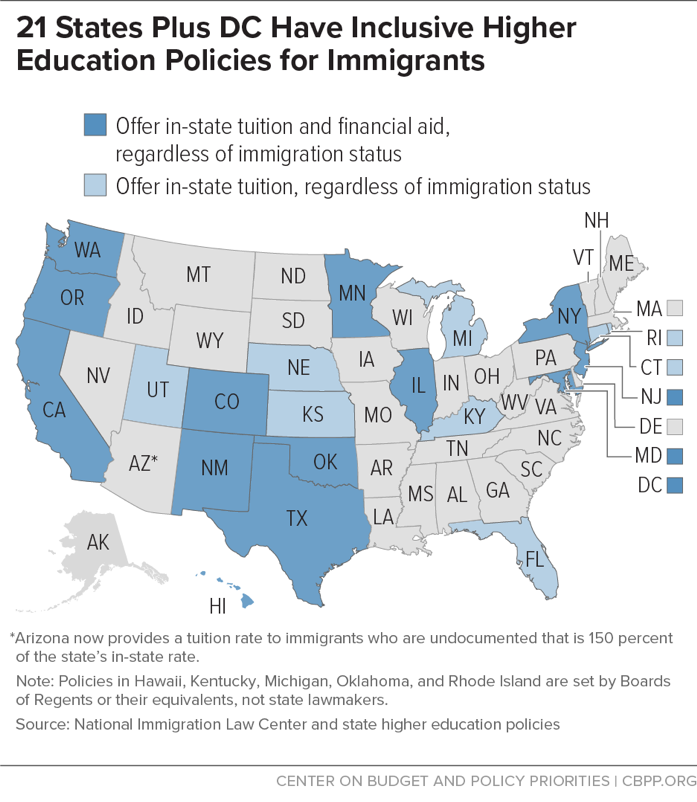BEYOND THE NUMBERS
Arizona Latest State to Choose Inclusive Approach to Immigrants Who Are Undocumented
The Arizona Board of Regents voted to lower tuition for students who are undocumented, bringing the state one step closer to full tuition equity. Its action last week adds to a series of policy improvements this year in the states for immigrants who are undocumented, as we recommend in our new paper — which highlights four ways that states can build broader, more inclusive economies, including by giving students who are undocumented access to in-state tuition and state financial aid.
By amending a policy created for Deferred Action for Childhood Arrivals (DACA) participants, Arizona will now let students who are undocumented and attend and graduate from Arizona high schools pay tuition at 150 percent of the in-state rate at the state’s public universities. Effective immediately, the change lowers the cost of attending an Arizona university from roughly $30,000 a year for out-of-state students — which undocumented students were considered — to roughly $16,000.
That’s still above the in-state average of $11,000, though. A 2006 Arizona law prohibits the Regents from giving students who are undocumented access to the in-state rate. Twenty-one states plus the District of Columbia offer in-state tuition to students who are undocumented (see map).
Other states also improved policies for immigrants who are undocumented this year by expanding access to:
- Financial aid. New Mexico allocated $25 million to a need-based scholarship fund and Utah created the state’s first need-based scholarship program, which will let Utah universities offer private institutional aid to students, regardless of documentation. Colorado, Illinois, and New York also expanded access to state financial aid to students who are undocumented.
- Driver’s licenses. Oregon and New York will now let immigrants who are undocumented obtain driver’s licenses. Colorado changed its system to broaden access, and New Mexico redesigned its license for immigrants who are undocumented to reduce the stigma associated with it.
- Wage protections. Colorado enacted a law that makes wage theft a felony and includes migratory and foreign workers in the definition of protected employees. New Mexico not only increased its minimum wage but ensured that domestic workers — an industry where immigrants are disproportionately represented — will benefit by no longer excluding them from the minimum wage. New York passed the Farmworker Fair Labor Practices Act, providing the right to overtime pay, one day of rest per week, and the right to collective bargaining among other benefits, to New York’s agricultural workers, many of whom are immigrants who are undocumented.
- Health coverage. California, which already provides universal health coverage access to all children, regardless of immigration status, took another step towards health care coverage for all by extending the state-funded program to young adults under age 25.
By choosing a pragmatic, humane approach to their immigrant friends, neighbors, and family members, state policymakers can produce a more educated workforce, let families and workers safely get where they need to go, ensure that more workers are paid fairly, and create a healthier, more prosperous community for all.

